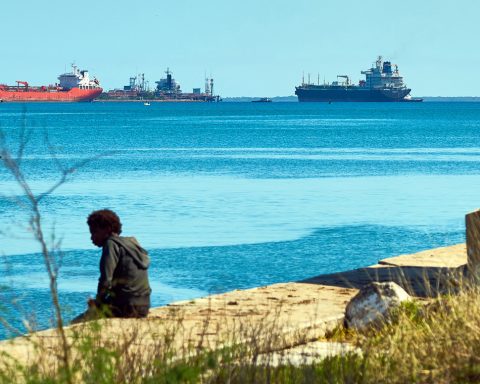Oil prices rose on Friday but fell short of their record highs from the day before, as concerns about a potential Russian supply disruption were tempered by hopes of a future nuclear deal with Iran.
A barrel of North Sea Brent for May delivery rose 1.58% to $112.21. In New York, West Texas Intermediate (WTI) for April delivery gained 2.02% to $109.85.
After a week of wild increases (+20% for both references), prices caught their breath.
“This spike shows how sensitive markets are to the very idea that supply shortages are getting worse, with fears that sanctions will directly target Russian energy exports,” said Han Tan, an analyst at Exinity.
However, hope kept prices away from record highs hit on Thursday, on “news that an Iran nuclear deal is imminent, which would add barrels to the market,” said Neil Wilson, an analyst at Markets.com.
The United States said on Thursday that a “possible agreement” on the Iranian nuclear issue was “close”, although questions remained in the air before it could be finalized.
Negotiators meeting in Vienna are seeking to salvage the moribund 2015 deal to prevent Iran from acquiring the atomic bomb. They have made “significant progress,” a spokeswoman for US diplomacy, Jalina Porter, told reporters.
For the oil market, a deal would mean the lifting of US sanctions, allowing Iranian exports to partly offset Russian crude.
Other commodities of which Russia is a major producer did not benefit from the Iranian reprieve.
Russia, which is the world’s second largest oil exporter, also supplies 40% of Europe’s gas.
The European gas benchmark, the Dutch TTF, rose 9.75% to 176.50 euros per megawatt-hour (MWh), up 87% in a week.
On the London Metal Exchange (LME), the ton of aluminum reached, for its part, a new historical maximum of 3,850 dollars and the ton of nickel, its highest level since 2011, with 29 thousand dollars.











